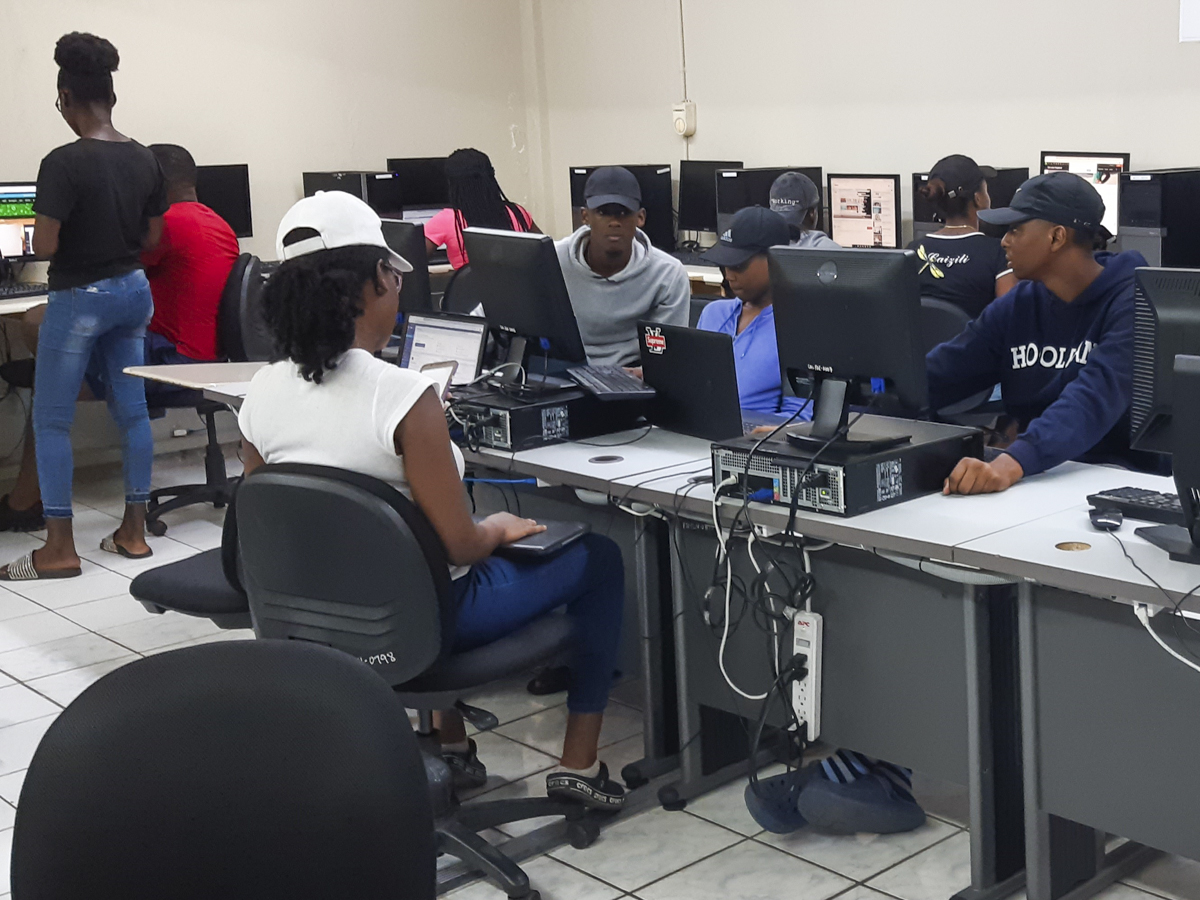Since March 2020, university students across Jamaica have been attempting to adapt to a new way of learning via digital platforms as the country grapples with the effects of the COVID-19 pandemic. The pandemic caused all university campuses in Jamaica to close their doors to students for their safety and move to remote learning. Students could no longer live on dorm or access on-campus facilities such as libraries, computer labs and free internet. Instead, students were to maintain social distancing, stay home and attend classes via Zoom, Blackboard Collaborate or other digital platforms. As many universities moved to fully online classes, we now highlight students’ experiences during this digitized learning period.

Initial Experiences
At the Northern Caribbean University (NCU), nursing student Mikhailia Thomas, stated that “due to the overload on the internet server and the student system provided by the [school], students were constantly “thrown” from the class sessions and would end up missing vital parts of the lesson.” Daniellia Hylton, a 2nd year student at the College of Agricultural, Science & Education (CASE) student found that in the beginning, navigating online platforms such as Zoom and Moodle was unusual. However, after weeks of getting accustomed to the platform her overall experience was good.
Not all experiences were negative. Caribbean Maritime Institute (CMU) student Renae Scott stated that Schoology, Zoom and Hangouts were already being used in classes part-time, making it an easy transition for students. At the Edna Manley College of the Visual and Performing Arts (EMCVPA), 2nd year student Abigail Byrue found the transition between physical and digital classes to be seamless, as classes began on-time and platforms were easily accessible.
Digital Divisions
Many of the issues faced by students are due to the existing digital divide in Jamaica. According to Stanford University, the digital divide is defined as the gap between members of society who are underprivileged, poor and in rural areas with little to no computer and internet access; and the wealthy, middle-class who reside in urban and suburban areas with access. At the Northern Caribbean University (NCU), Mikhailia Thomas stated that there are “some students that reside in areas with very little to no internet access, limiting or completely severing class participation.” A study done in 2014 by College of Business and Management at the UTech Jamaica showed that only 36% of rural households had access to broadband internet while 64% were without. The quality of the internet also needs to be addressed. A Bachelor of Pharmacy student, Reneé Hamilton, at UTech Jamaica experienced her Wi-Fi speed going down during an exam, and it did not return until there was 20 minutes left for the test.
Internet access is not the only issue. Many students who do not own proper equipment such as computers, laptops or even smartphones and tablets must find other means to attend classes and do assessments. When a student of UTech Jamaica questioned a lecturer about having inefficient equipment to complete an assessment, the lecturer replied that it was difficult to give students additional time to complete assessments, because they could not monitor what is going on from the other end.
Assessment Challenges
Some students believed assignments and assessments were much more difficult, and linked this to the implementation of remote learning. “A lot of times we weren’t able to come together at the same time to get the work done,” stated Scott when discussing her group assignments at CMU. Hylton and Thomas stated that their institutions, CASE and NCU, decided to forgo their usual final exams and practicals, replacing them with graded assignments. Similarly, Byrue of EMCVPA said that her coursework was increased to accommodate the reduction in the number of final exams. Course material was made available on Moodle for students to be prepared for their final exams paired with online sessions. Outside of one class that had no online sessions, the assessments were easily and successfully completed.
Media and Communication student at the University of the West Indies Paige Rowe-Douglas stated that although her course of study was already partially online, she admitted that her exams were difficult, but student polls resolved the problem. Student polls were done for each faculty and gave students the option of casting votes, for their views to be considered, regarding the exam period. According to Rowe-Douglas practical courses such as photography which required group assessments were done by one individual but presented on by all members. During UWI’s examination period many students turned to Twitter and Instagram to express their frustration. Their grievances included the uncertainty of exams being conducted online or in the tent and the removal of course material from their online platform.
The stay-at-home orders found internet service providers not being able to handle the high surge in demand for cellular data and broadband internet needed for e-learning. To fully immerse themselves in the new digital classroom, students need access to fast internet while at home. The divide has resulted in inequality and uncertainty in the ‘modern classroom’ and has to be addressed by the universities, internet service providers and government in order to ensure equity of education in the age of COVID-19.
Reported by Breanna Lewin & Nakaylia Morant
